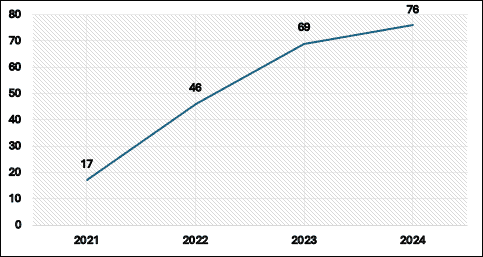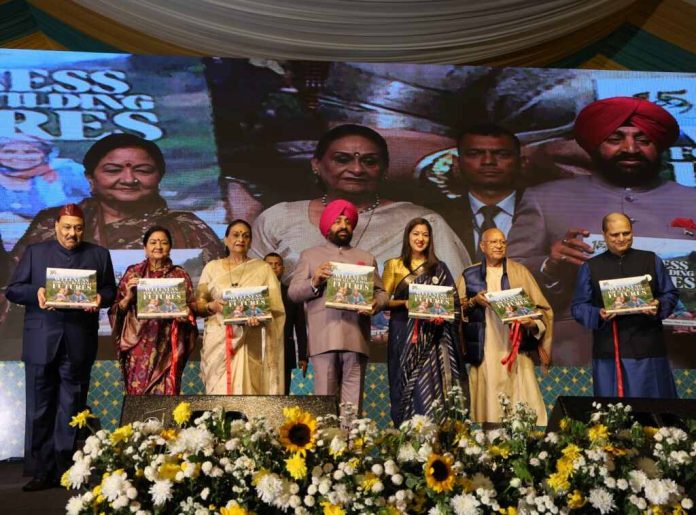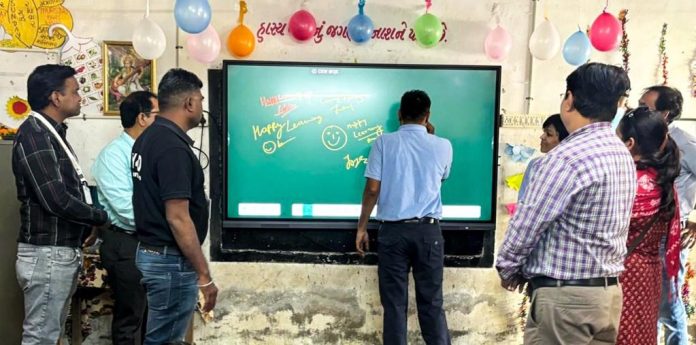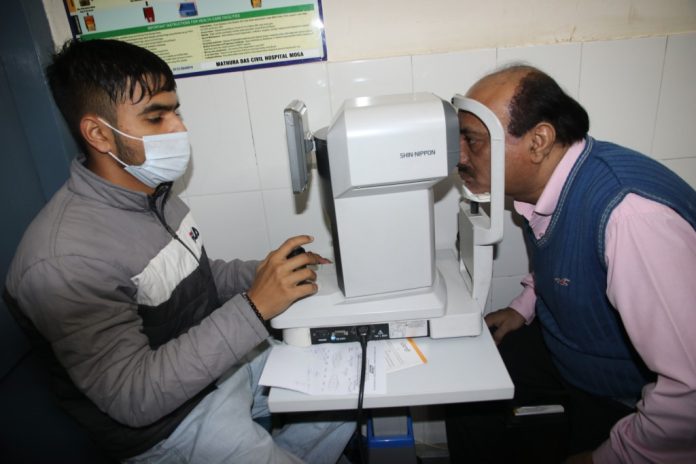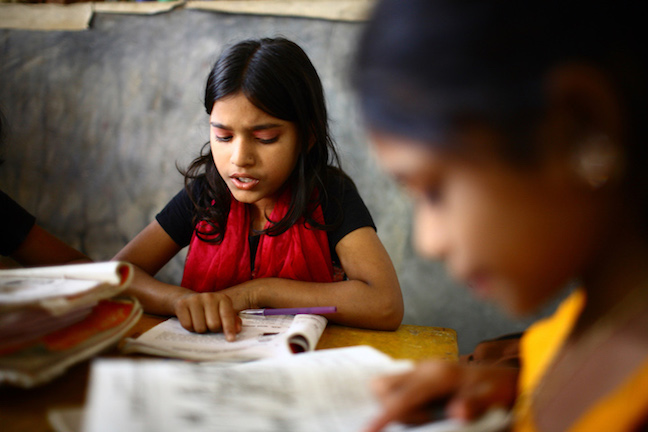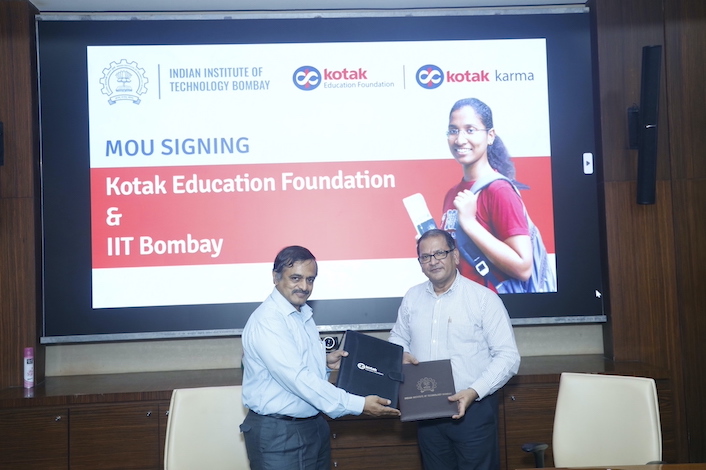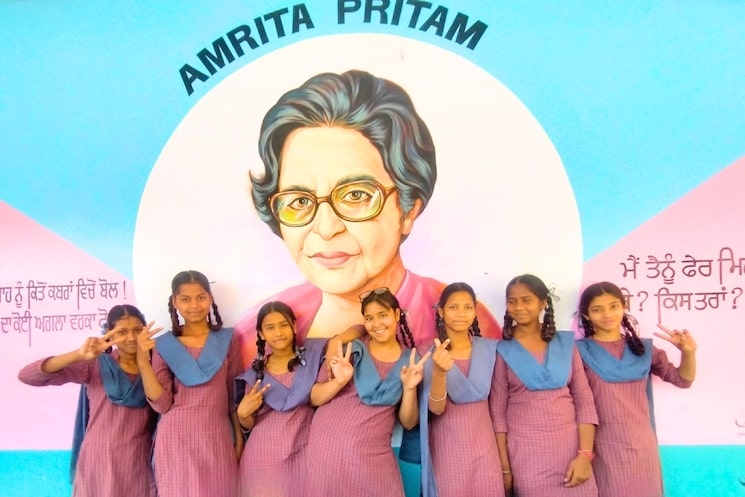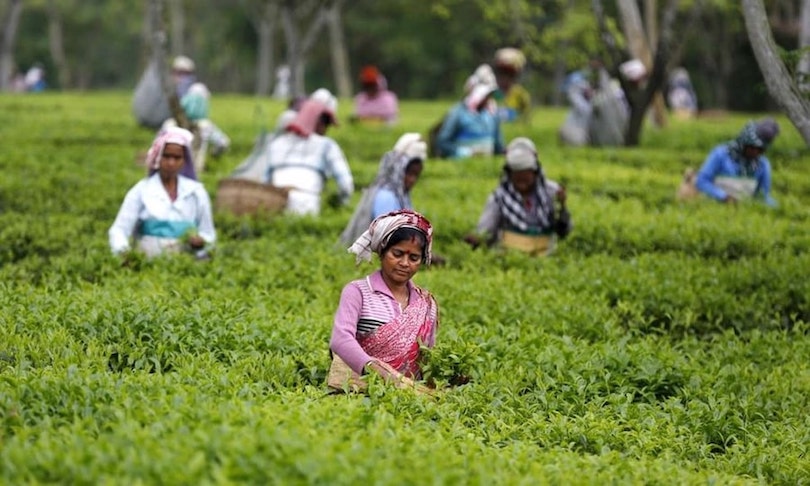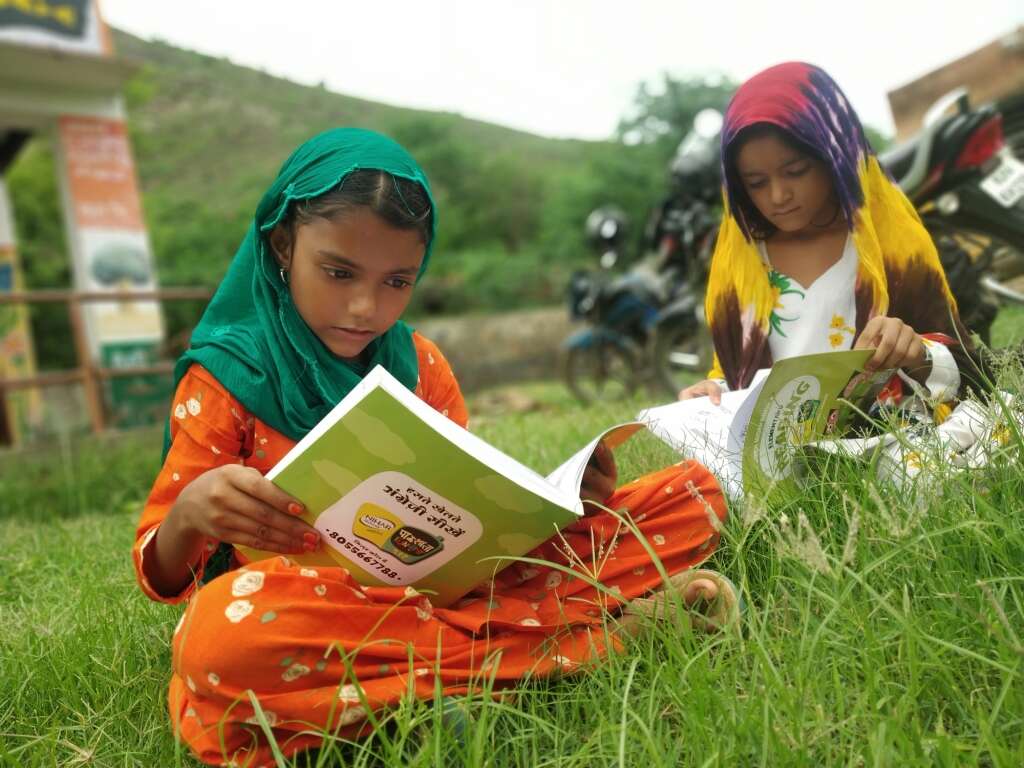CSR News: Lupin’s ESG Score Rises to 76 in S&P Global ESG Ratings
Global pharma major Lupin Limited (Lupin) today announced its S&P Global ESG scores have moved up to 76 from 69 last year, well above the industry average of 30 in the pharmaceuticals sector. The company has demonstrated consistent and sustained growth in its Environment, Social and Governance (ESG) performance, underlying its commitment to all aspects of business. Lupin’s steady climb in the S&P Global ESG scores is one amongst the fastest in the pharma industry in India.
A strong Sustainability framework is at the heart of Lupin’s strategy and the company has integrated it in all its business operations. By accelerating its transition to net-zero emissions, enhancing social impact, and upholding the highest standards of governance, Lupin is paving the way for a more sustainable and equitable future.
Commenting on the achievement, Ramesh Swaminathan, Executive Director, Global CFO and Head – API Plus SBU, Lupin said, “We have made significant progress in our Environmental, Social, and Governance goals over the last four years. The S&P score reaffirms our commitment to prioritizing sustainability and creating impactful and sustainable healthcare solutions that benefit our patients and our communities worldwide.
Some of Lupin’s main focus areas on the ESG front are environmental stewardship (climate change, water recycling, circular economy, LCA, biodiversity assessment), employee well-being (diversity, equity and inclusion), supply chain sustainability, and patient-centric innovation. The Company has increased its share of use of renewable energy to 33.8% and reduced carbon emissions by 21% over the last year. The company is water positive in all its water usage.
Disclaimer: This media release is auto-generated. The CSR Journal is not responsible for the content.
CSR News: Swasthya Cities Initiative launched to transform urban health ecosystems
New Delhi, 25th November 2024: Commemorating its 15th anniversary, The Hans Foundation (THF) has unveiled the Swasthya Cities initiative, a transformative programme aimed at addressing urban challenges in healthcare, education, and livelihoods. This milestone initiative underscores THF’s journey of empowering vulnerable populations, as it strives to improve the lives of over 13 crore urban residents across 20 cities by 2030.
The Swasthya Cities initiative celebrates 15 years of The Hans Foundation’s dedication to reducing inequalities and fostering sustainable development. The programme adopts a multi-dimensional approach, integrating healthcare, education, disability inclusion, and livelihood generation to build inclusive, self-reliant, and sustainable urban ecosystems.
Over the past 15 years, The Hans Foundation has impacted 40 million lives across 20,000 villages and 20 cities, addressing critical challenges in health, education, disability inclusion, and livelihoods. From funding life-saving surgeries for children to empowering individuals with disabilities, THF has been at the forefront of creating equity and opportunity for India’s most vulnerable. The Swasthya Cities initiative is a natural progression of this journey, tackling the unique challenges of urbanization.
Under the initiative, each Swasthya City will house 50 Hans Wellness Centres, seamlessly blending mental and physical health support for underprivileged students. The program will also feature 10 inclusive schools fostering a disability-friendly environment along with multiple child development centres for early disability detection, and about 40 Mobile Therapy Buses delivering doorstep services for persons with disabilities to urban slums.
Moreover, the program also aims two build two schools in each city that will offer non-formal education focusing on mainstreaming of children in formal schools and also strengthen quality of education in formal schools that have resource constraints to hire expert teaches for academic excellence and sports activities. Furthermore, partnering with hospitals, THF’s Paediatric Programs would be offered to children who are born deaf, children with congenital heart diseases, children requiring other paediatric services including bone marrow transplant and epilepsy treatment.
“Swasthya Cities reflects our vision to enhance urban life comprehensively,” said Ms. Shweta Rawat, Chairperson, The Hans Foundation. “We are committed to addressing the multifaceted challenges of urbanisation through innovative, community-driven approaches that promote dignity and opportunity for all. This initiative reaffirms our dedication to improving the quality of life in cities across India by not only expanding access to essential healthcare and education but also fostering resilience and empowerment within communities. Through these targeted efforts, we aim to build sustainable urban ecosystems where every individual, regardless of their background, can thrive and contribute meaningfully to society.”
These Swasthya cities will spread across 12 States / UTs, include Ahmedabad, Bangalore, Chennai, Coimbatore, Ghaziabad, Delhi, Faridabad, Greater Noida / Noida, Gurugram, Howrah, Hyderabad, Kochi, Kolkata, Nagpur, Surat, Puducherry, Pune, Raipur, Mumbai, Thane. These cities have a cumulative population of around 13 Crore of which, the Swasthya City program would impact around 2 Crore population by 2030.
Hon’ble Governor of Uttarakhand, Lt. Gen Gurmit Singh PVSM, UYSM, AVSM, VSM (Retd), also lauded the initiative, adding: “The Hans Foundation has been a beacon of hope for millions over the last 15 years of its operations. I am confident that Swasthya Cities will continue to build on the Foundation’s vision of reducing inequalities and fostering sustainable development. It is an honour to witness this transformational journey.”
This landmark initiative celebrates 15 years of The Hans Foundation’s mission to serve India’s most vulnerable populations. Building on its track record of transformative impact, the Swasthya Cities initiative sets a new benchmark for sustainable, inclusive urban development in India.
Disclaimer: This media release is auto-generated. The CSR Journal is not responsible for the content.
CSR News: Digital Smartboards installed in 100 schools across 10 states of India
Gurugram, India: Hindustan Coca-Cola Beverages (HCCB), in collaboration with Y4D Foundation, has successfully installed Digital Smartboards in 100 primary and high schools across Odisha, Maharashtra, Gujarat, Madhya Pradesh, Goa, Karnataka, Kerala, Andhra Pradesh, Tamil Nadu, and Telangana. As part of HCCB’s corporate social responsibility (CSR) program, this initiative aims to enhance classroom learning by integrating modern educational technology, promoting fostering interactive and engaging learning environments for approximately 15,000 students.
By integrating technology into the classroom, the newly installed smart boards aim to promote an interactive, engaging, and dynamic learning environment. The digital smart boards will serve as an essential tool in modernising the classroom experience, enabling teachers to offer more interactive lessons and enhancing students’ ability to grasp complex concepts through visual and digital aids.
Reflecting on the initiative, Himanshu Priyadarshi, Chief Public Affairs, Communications, and Sustainability Officer, HCCB said “Education serves as the key catalyst for societal transformation, and integrating technology into classrooms is a strategic investment in the future of our communities. By equipping students with modern tools and fostering interactive learning environments, we are not only enhancing their educational experience but also empowering them with critical digital skills needed for a rapidly evolving world. This initiative aligns with our broader commitment to driving sustainable and inclusive growth, preparing today’s students to become tomorrow’s leaders in a knowledge-driven economy.”
In tandem with its efforts to enhance educational infrastructure, HCCB places a strong emphasis on integrating WASH (Water, Sanitation, and Hygiene) awareness into its education-focused initiatives. Recognizing that a healthy learning environment is foundational to academic success, HCCB conducts WASH awareness sessions across multiple states to teach students essential hygiene practices such as effective handwashing techniques, safe drinking water habits, and proper waste management. These lessons are complemented by the distribution of hygiene kits, enabling students to adopt these practices and create a cleaner, healthier school environment.
Additionally, HCCB has undertaken key infrastructure enhancements in schools to support both education and hygiene, including the construction of modern sanitation facilities, the installation of RO units for clean drinking water, and the provision of school furniture to improve learning conditions. These integrated efforts not only elevate the quality of education but also ensure that students thrive in an environment that promotes their overall health and well-being, embodying HCCB’s holistic approach to sustainable development through education.
Disclaimer: This media release is auto-generated. The CSR Journal is not responsible for the content.
CSR News: Eye Camp hosted at Mathra Das Civil Eye Hospital in Moga, Punjab
New Delhi, India: Bry-Air, the flagship company of the Pahwa Group, organized its 14th Biannual Eye Camp at Mathra Das Civil Eye Hospital at Moga, Punjab as part of its CSR activity. The initiative focusing on enhancing the lives of villagers was conducted as part of the 60-year celebration of the company.
Considering that many villagers face a range of eye problems, with this initiative, the brand aims to improve the accessibility of eye treatment for locals. A total of 698 people attended the camp from neighbouring villages of Bughipura, Mehna, Ghall Kalan, Singhan Wala, Landheke, Dhalleke, Dala, Dhurkot Kalan, Dhurkot Tehli Wala, and many more. Over 81 attendants were identified for cataract surgeries, and more than 1000 free medicines along with 300 spectacles were distributed as part of the activity.
Mr. Sanjeev Saini, Chief Patron, Bhartiya Jagriti Munch, Moga, inaugurated the event, and the eye camp was also graced by the presence of Dr. Amandeep Kaur Arora, MLA, Moga; Mrs. Indu Puri, eminent social worker, Moga; and Mr. Charanjeet Singh Channi, Mayor, Moga.
The eye camps are organized on a regular basis by the company as a gesture of paying tribute to Rai Bahadur Dr. Mathra Das Pahwa. It is a testament to carrying forward his passion of helping people gain their eyesight. He was felicitated with the title of Netra-Dev (God of Eyes) for his relentless work of providing cataract surgery to the underprivileged. Moreover, driven by his zeal, he created a record by conducting 750 operations in a single day, winning him the title of the world’s greatest eye operator. Commemorating his selfless contribution to society, he was awarded the Padma Shri (1954), the title of Rai Bahadur (1921), Kesari Hind- Gold Medal (1924), Kesari Hind- Silver Medal (1912).
Honoring his remarkable work as a philanthropist in the field of vision, till date, Bry-Air has conducted 13 biannual eye camps at Mathra Das Civil Eye Hospital, which was started by Rai Bahadur Dr. Mathra Das Pahwa. Along similar lines, continuing the charitable work, Bry-Air has successfully organized more than 124 eye camps over the years, providing treatment to 43079 people in the process. In addition to this, they have also performed 3513 cataract surgeries successfully along with the free distribution of 34336 medicines and 39531 spectacles during the period.
Speaking on the occasion, Mahmood Akhtar, CSR Manager at Bry-Air said, “The eye camp organized every year showcases our commitment to help the villagers avail free eye treatment for their various eye problems. Carrying forward the practice, the 14th biannual camp focused on giving cataract treatment to the locals of the region. Considering that people of the villages have limited access to treatment for cataract, the initiative by Bry-Air servers the purpose of reaching out to people of remote parts of the country and helping them with improved vision.”
Disclaimer: This media release is auto-generated. The CSR Journal is not responsible for the content.
मूंज की इको फ्रेंडली डलियों में गंगा जल की पैकिंग, सीएसआर से पहल, महाकुंभ के लिए स्टार्ट अप
विश्व का सबसे बड़ा Human Gathering अगर कहीं होता है तो वो Kumbh Mela में होता है। इस बार प्रयागराज महाकुंभ में 40 करोड़ से अधिक श्रद्धालुओं के पहुंचने का अनुमान उत्तर प्रदेश सरकार ने लगाया है। Prayagraj के त्रिवेणी के तट पर आने आने वाले हर श्रद्धालु की ख्वाहिश होती है कि वह यहां के त्रिवेणी का पावन जल लेकर वापस घर जाएं। महाकुंभ में आने वाले करोड़ों श्रद्धालुओं की इस ख्वाहिश को देखते हुए उत्तर प्रदेश की योगी सरकार अब रेलवे स्टेशन और बस स्टेशन में ही त्रिवेणी का जल उपलब्ध कराएगी। स्वयं सहायता समूह की महिलाओं की इसकी जिम्मेदारी दी गई है।
रेलवे स्टेशन और बस स्टैंड में मिलेगा त्रिवेणी का बोतल बंद पावन जल
पुण्य भूमि प्रयागराज की पहचान है यहां का तीन पावन नदियों का वह संगम जहां गंगा, यमुना और अदृश्य सरस्वती का मिलन होता है। इसी वजह से यहां के इस पवित्र जल का विशिष्ट महत्व है। माघ मेला, कुंभ और महाकुंभ में यहां लोग स्नान करने आते हैं और अपने साथ संगम का जल ले जाते हैं। महाकुंभ में अधिक भीड़ होने के चलते बड़ी संख्या में लोगों को त्रिवेणी का पावन जल नहीं मिल पाता है। लेकिन इस बार महाकुंभ में श्रद्धालुओं को इसके लिए परेशान नहीं होना पड़ेगा। शहर के सभी बस अड्डों और रेलवे स्टेशनों पर बोतल बंद और कलश में त्रिवेणी का जल उपलब्ध होगा। स्वयं सहायता समूह की महिलाएं इस जिम्मेदारी को निभाएंगी।
इको फ्रेंडली मूंज से बनी डलियों में होगी Ganga Jal की पैकिंग
त्रिवेणी का जल धातु से बने कलश और बोतलों में होगा जिसे खूबसूरत और सुरक्षित आधार प्रदान करने के लिए मूंज की डिजाइनर डलियां तैयार की गई हैं। प्रयागराज के एक जनपद एक उत्पाद (ओडीओपी) मूंज को इसके लिए खास तौर पर चुना गया है। नैनी के महेवा गांव मूंज के उत्पाद बनाने वाली महिलाओं ने इसके लिए डिजाइनर डलियां बनाई हैं। यह त्रिवेणी का जल एक लीटर,आधा लीटर और 250 मिली के पैकिंग में होंगी। इससे जिले के ओडीओपी की ब्रांडिंग भी होगी।
सीएसआर के तहत बनी Self Help Group की महिलाएं उठाएंगी जिम्मेदारी
महाकुंभ से पहले प्रयागराज में स्वयं सहायता समूह की महिलाएं रेलवे स्टेशन, बस स्टैंड व धार्मिक स्थानों पर गंगाजल उपलब्ध कराएंगी। सीएसआर (CSR – Corporate Social Responsibility) की मदद से बने स्वयं सहायता समूह की महिलाओं को आत्मनिर्भर बनाने की दिशा में यह स्टार्टअप शुरू किया जा रहा है। राष्ट्रीय आजीविका मिशन एक हजार से अधिक स्वयं सहायता समूह की महिलाओं को इसके लिए प्रशिक्षण दिया जाएगा। इन महिलाओं को रेलवे स्टेशन, बस स्टैंड व अन्य धार्मिक स्थानों पर गंगाजल की बिक्री का प्रशिक्षण दिया जाएगा। अगर इन महिलाओं का काम अच्छा रहा तो इनकी संख्या भी बढ़ाई जाएगी। इससे महिलाएं आत्मनिर्भर भी बनेंगी।
CSR News: #TakeChildhoodsSide Initiative had most prominent childcare, parenting influencers support the campaign on Instagram

The #TakeChildhoodsSide campaign by Bachpan Manao that had unequivocal support from influencers such as like Harpreet Grover (The Curious Parent with 1 million followers) Tara Sharma Saluja (413k followers), Maria Goretti (307k followers), Fatema Agarkar (30.2 followers), Neha Kanabar (40.6k followers, founder of UNIMO Universe of Moms with 51.6k followers), Simone Khambatta (228k followers), Sruti Nakul (361k followers), Piya Marker (38.9k), Satrupa Sharma (158k followers) and Funskool (18k followers and India’s leading toy company). In just a span of 4 days over 215 people rallied on Instagram to support the social message of #TakeChildhoodsSide. The campaign content on the Bachpan Manao handle has had over 20.5 million impressions and reached almost 8 million people on Instagram in the same time period.
#TakeChildhoodsSide was conceptualised to bring to the fore the contrast between a “Child’s World” of wonder, joy, and creativity, and an “Adult’s World” of structure, stress, and technology dependency. The campaign intended to increase awareness on the importance of free play and reducing screen dependency, encourage parents, influencers, and caregivers to participate by challenging friends to share their side profiles with a pledge to support a happier and healthier childhood and bring about a behavioural shift inspiring families to prioritise daily playtime, reduce screen exposure, and encourage childhood experiences filled with exploration and creativity.
Through Instagram, the campaign invited participants to post side-profile images, symbolising their personal choice to support childhood’s freedom, tagged with #TakeChildhoodsSide. This visual disrupts the feed, sparking curiosity and conversation about the urgent need for free play and reduced screen time in early childhood.
Disclaimer: This media release is auto-generated. The CSR Journal is not responsible for the content.
CSR News: SpaceBasic forays into Malaysia, eyes further expansion into Southeast Asia
SpaceBasic, a B2B Saas company that offers a connected campus management experience for universities and other educational institutions, has launched operations in Malaysia. The company has recently onboarded Peninsula College, a leading private institution in Malaysia, to offer a connected campus management experience. This marks SpaceBasic’s first foray into international markets with plans to aggressively expand into other markets such as Philippines and Vietnam over the next few months.
In India, SpaceBasic works with over 70 universities, including notable Indian institutions such as IIM, O.P. Jindal University, Shoolini University, D.Y. Patil University and Good Host Spaces. The company plans to follow a similar trajectory in Malaysia and other SE Asian countries.
Commenting on the expansion, Madhavi Shankar, CEO and Co-Founder, SpaceBasic, said, “ Our journey in India has been incredible, with universities embracing our solutions to transform campus operations. From automating tasks to reducing carbon footprint, SpaceBasic has been instrumental in creating a seamless, connected campus experience. With our entry into Malaysia, we plan to recreate a similar impact across universities in South East Asia. Our partnership with Peninsula college has been a great starting point and we plan to rapidly onboard other universities in Malaysia”
Founded by Madhavi Shankar and Indu Navar, SpaceBasic enables colleges and universities to drive student success with a digital campus management experience. With SpaceBasic, students easily navigate the university experience with Automated Campus Housing (Student Hostels), Digital Cafeteria, SpaceBasic Pay, Smart ID cards and eventually a Marketplace (job fairs, internships, placements) while faculty and staff have access to AI-driven insights from everyday tasks and communication.
During rigorous due-diligence, founders discovered that about 80% universities and schools in India use little to no technology outside of the classroom. Campus operations like student housing hostels, managing cafeterias and access control were ineffective and all performed manually with fragmented data sources. With SpaceBasic’s automated workflow system, there is significant reduction in time and effort in carrying out these tasks. Beyond speed, automation allows university campuses to analyse data predictively, spotting potential issues, tracking the frequency of requests, and identifying recurring patterns. This predictive insight not only lowers costs but also enhances operational efficiency, resulting in up to 3x cost savings and 5x greater efficiency across campus management processes.
Disclaimer: This media release is auto-generated. The CSR Journal is not responsible for the content.
International Day for the Elimination of Violence against Women: NGOs supporting Domestic Violence Victims in Mumbai




